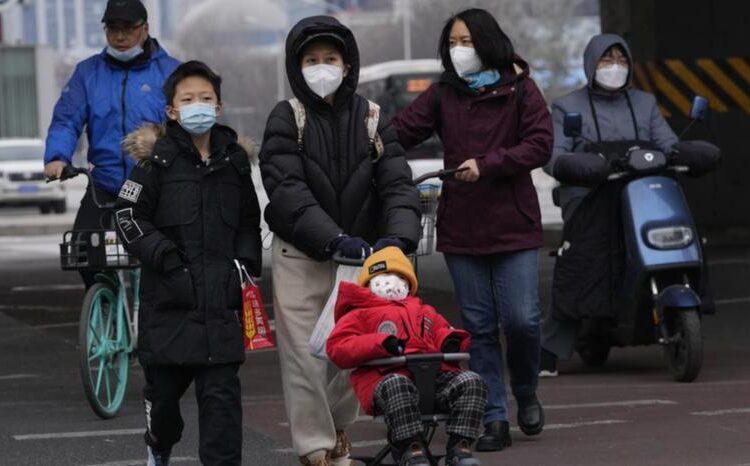SHANGHAI — Beijing residents cheered the removal of Covid-19 testing booths while Shenzhen followed other cities in announcing it would no longer require commuters to present their test results to travel, as an easing of China’s virus curbs gathered pace.
Although daily cases hover near all-time highs, some cities are taking steps to loosen Covid-19 testing requirements and quarantine rules as China looks to make its zero-Covid policy more targeted amid an economic slowdown and public frustration that has boiled over into unrest.
Three years into the pandemic, China has been a global outlier with its zero-tolerance approach towards Covid that has seen it enforce lockdowns and frequent virus testing. It says the measures are needed to save lives and avoid overwhelming its healthcare system.
China began tweaking its approach last month, urging localities to become more targeted. Initial reactions, however,were marked with confusion and even tighter lockdowns as cities scrambled to keep a lid on rising cases.
Then a deadly apartment fire last month in the far western city of Urumqi sparked dozens of protests against Covid curbs in a wave unprecedented in mainland China since President Xi Jinping took power in 2012. Cities including Guangzhou and Beijing have since taken the lead in making changes.
Today, the southern city of Shenzhen announced it would no longer require people to show a negative Covid test result to use public transport or enter parks, following similar moves by Chengdu and Tianjin, among China’s biggest cities.
Many testing booths in the Chinese capital of Beijing have also been shut, as the city stops demanding negative test results as a condition to enter places such as supermarkets and prepares to do so for subways from Monday, though many other venues including offices still have the requirement.
A video showing workers in Beijing removing a testing booth by crane on to a truck went viral on Chinese social media yesterday.
“This should have been taken away earlier!,” said one commentator. “Banished to history,” said another.
China is set to further announce a nationwide reduction in testing requirements as well as allowing positive cases and close contacts to isolate at home under certain conditions, sources familiar with the matter told Reuters earlier this week.
Xi, during a meeting with European Union officials in Beijing on Thursday, blamed the mass protests on youth frustrated by years of the Covid-19 pandemic, but said the now-dominant Omicron variant of the virus paved the way for fewer restrictions, EU officials said.
Officials have only recently begun to downplay the dangers of Omicron, a significant change in messaging in a country where fear of Covid has run deep.
On Friday, some Beijing neighbourhoods posted guidelines on social media on how positive cases can be quarantined at home, a landmark move that marks a break from official guidance to send such people to central quarantine.
Still, the relief has also been accompanied by concerns, especially from groups such as the elderly who feel more exposed to a disease authorities had consistently described as deadly until this week, highlighting the difficulties Xi and Chinese leaders face in loosening.
China reported 32,827 new local Covid-19 infections for December 2, down from 34,772 a day earlier.






Discussion about this post